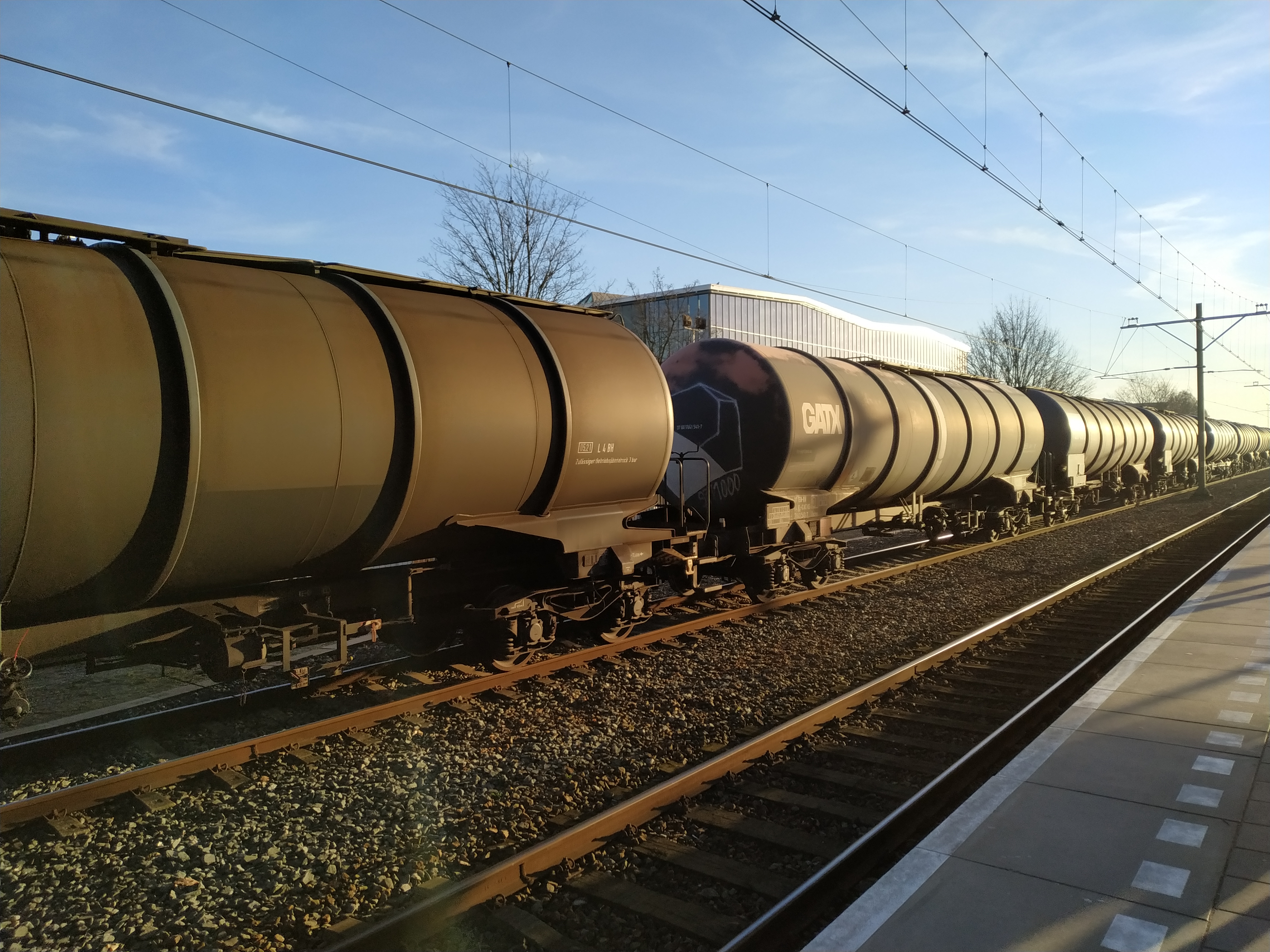Restrictions hazardous goods in Port of Rotterdam remain until January
To the annoyance of rail freight operators, freight trains with hazardous substances cannot be shunted on the intermodal yard of Rotterdam Waalhaven in the coming weeks. In September this year, these activities were forced to cease because the fire extinguishing capacities failed. According to rail freight operators, the problems in the Waalhaven are just a tip of the iceberg.
Tests with an emergency provision set up by the Dutch railinfrastructure manager ProRail failed early November. Then it became quiet around the Waalhaven shunting yard. According to the rail manager, the cause of the problems with the test had to be investigated before a new test could take place. In addition, such a test requires the cooperation of the city’s environmental service DCMR and the safety authority Rijnmond.
A new test is now planned for January, but ProRail cannot yet give an exact date. “If the new test is successful, the restriction on shunting wagons with hazardous substances could, in the most favorable case, be lifted within a week,” says ProRail spokesperson Coen van Kranenburg. “All the authorities involved must give their approval before shunting can resume. But that usually takes place within a week. ”
Loose coupling
The temporary fire extinguishing water system consists of a three-kilometer fire hose to a water basin near the yard. The hose consists of several parts that are connected to each other. During the test on November 1, one of the couplings broke loose. As a result, ProRail had to cancel the test prematurely. But according to Van Kranenburg, more defects were found. “Normally, developing and installing such a system takes two years. Because we wanted to remove the restriction as quickly as possible, this solution was devised in a month.”
“During the test it turned out that things had to be improved. It is about the safety of the firemen and other emergency services, because in the old situation they had to extinguish too close to the situation, then there should be no surprises with a temporary solution such as a coupling that comes loose. That takes more time. In addition to fixing the hoses, some barriers had to be placed in a number of places, for example.”
Permanent solution
ProRail promised to have a solution ready by the end of the year when the usage restrictions on Waalhaven were set. “That we will not meet that deadline is unavoidable, but we are hopeful that January will succeed.” In addition to a temporary solution, ProRail is also working on a permanent solution to improve the fire-extinguishing capacity. The rail manager wants to use wells for this. “This development continues in parallel with the temporary provision. Ultimately, this should lead to a solution for decades. ”
Text continues under the photo.

Freight train dangerous goods.
Kijfhoek
Intermodal yard Waalhaven Rotterdam is a crucial shunting area for the transport of containers, tank containers, trailers and swap bodies that enter and leave the port of Rotterdam and travel further to destinations such as the Dutch cities of Venlo, Tilburg and Coevorden. Duisburg in Germany, but also further to Poznan, Milan, Vienna, Budapest and China.
There is a lot of annoyance from the rail freight transport companies about shutting down activities with hazardous substances at Waalhaven. These trains have not been allowed in for three months now. The shunting activities have largely been relocated to the nearby Kijfhoek yard, but this requires extra manpower and longer lead times. For example, changing locomotives takes an hour in Waalhaven, but according to the carriers this process takes several hours at Kijfhoek.
In addition to the costs that are incurred by the carriers, the sector also claims considerable damage to its image. Delays and limited availability ensure that cargo leaks away to other ports and modalities. “We are aware that this situation is causing a great deal of damage and disruption to the industry, but we are really doing everything we can to find a good solution as quickly as possible,” says Van Kranenburg. “ProRail is in discussions with all affected companies to properly handle the damage suffered. This is also a major loss for ProRail. ”
Serious concerns
According to Hans-Willem Vroon of the Dutch branch organization Railgood, the problems with the extinguishing facilities at Waalhaven are just the tip of the iceberg. “The entire railfreight infrastructure around the port of Rotterdam is struggling with an increase in the number of disruptions since ProRail took over management in 2015. We are now reaping the bitter fruits of wrong cost cuts in recent years. We now have an average of 30 to 40 extra disruptions per quarter compared to 2015. But we also see an increase in the number of failures on other freight-specific routes.”
According to Railgood, the Rotterdam rail product is under great pressure. “Hard intervention is needed, but by whom? The damage to freight carriers is growing and growing. In addition, on 15 December ProRail increased the set-up tariffs in the port by half a million euros and the track usage charge rises from 2.90 euros to 3.12 to 3.75 euros per intermodal train kilometer.”
Also read:
- Restrictions dangerous goods in Port of Rotterdam: ‘this should not last months’
- Temporary stop for hazardous goods in Port of Rotterdam
You just read one of our premium articles free of charge
Want full access? Take advantage of our exclusive offer





